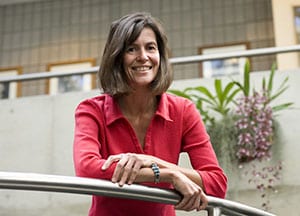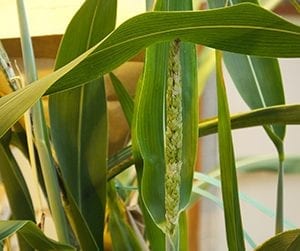News
Better Biofuels: Harrison Collaborates on Sorghum Project
A new Department of Energy-funded project in the Harrison laboratory may one day yield more efficient sorghum that will require less fertilizer input.
Maria Harrison, the William H. Crocker Professor at BTI, will participate in a $13.5 million, multi-institution systems biology project with Daniel Schachtman of the University of Nebraska-Lincoln to develop sorghum that is more drought resistant and uses nitrogen more efficiently. This project taps into the Harrison lab’s experience studying the interactions between plant roots and symbiotic fungal species, called arbuscular mycorrhizal (AM) fungi.
“It is an exciting project because of the diversity and scale of the activities,” said Harrison. “It gives my lab an opportunity to participate in field experiments and to work with experts from other disciplines.”
The project aims to develop Sorghum bicolor varieties that can be grown on marginal lands with little fertilizer or additional water. Currently, most bioethanol comes from corn, but this crop is already in demand as a worldwide staple food. Sorghum is tremendously diverse and different sorghum varieties are grown for many different end uses, including grain, sugar and biomass. Both the sugar and biomass varieties are used as biofuels.
By using advanced breeding techniques and genomic analyses, plant researchers will attempt to produce sorghum varieties that survive in drought conditions and on land that is not useful for agriculture. Meanwhile, to assess potential microbial solutions for increasing the plant’s ability to withstand stress and to use resources more efficiently, microbiologists will study how soil microbes, including AM fungi, can assist the plant in taking up nutrients and water from the soil.
The interdisciplinary team is composed of researchers at the Danforth Plant Science Center, Washington State University, University of North Carolina-Chapel Hill, Clemson University, Iowa State University, Colorado State University and the DOE-Joint Genome Institute.




